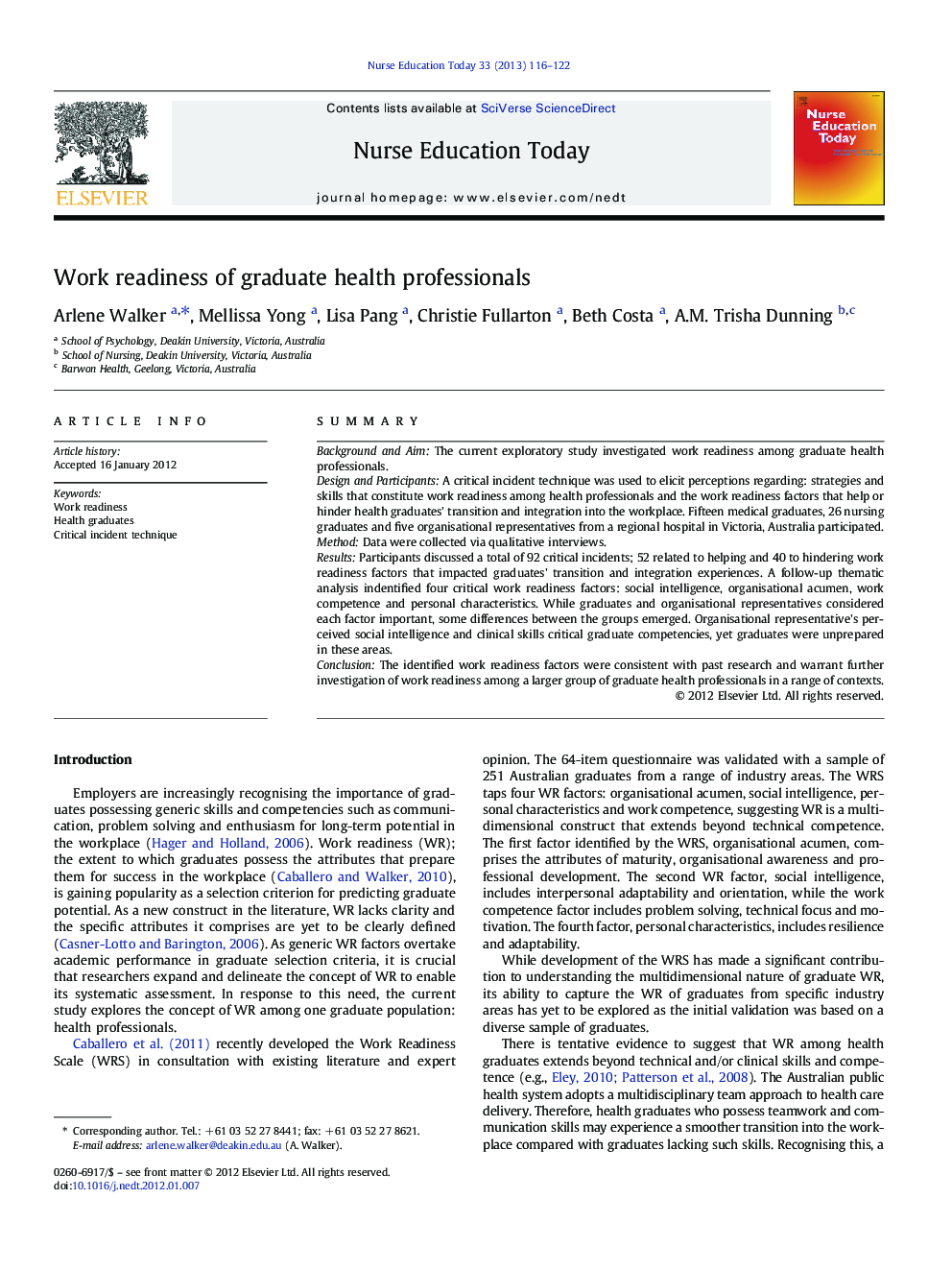| Article ID | Journal | Published Year | Pages | File Type |
|---|---|---|---|---|
| 368798 | Nurse Education Today | 2013 | 7 Pages |
SummaryBackground and AimThe current exploratory study investigated work readiness among graduate health professionals.Design and ParticipantsA critical incident technique was used to elicit perceptions regarding: strategies and skills that constitute work readiness among health professionals and the work readiness factors that help or hinder health graduates' transition and integration into the workplace. Fifteen medical graduates, 26 nursing graduates and five organisational representatives from a regional hospital in Victoria, Australia participated.MethodData were collected via qualitative interviews.ResultsParticipants discussed a total of 92 critical incidents; 52 related to helping and 40 to hindering work readiness factors that impacted graduates' transition and integration experiences. A follow-up thematic analysis indentified four critical work readiness factors: social intelligence, organisational acumen, work competence and personal characteristics. While graduates and organisational representatives considered each factor important, some differences between the groups emerged. Organisational representative's perceived social intelligence and clinical skills critical graduate competencies, yet graduates were unprepared in these areas.ConclusionThe identified work readiness factors were consistent with past research and warrant further investigation of work readiness among a larger group of graduate health professionals in a range of contexts.
